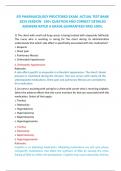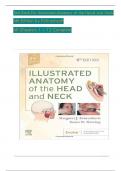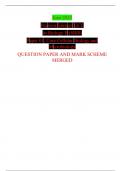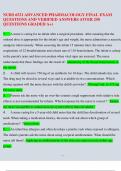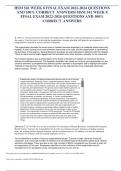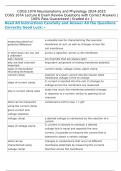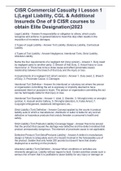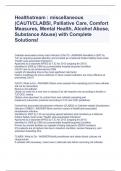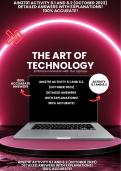Exam (elaborations)
ATI PHARMACOLOGY PROCTORED EXAM ACTUAL TEST BANK 2024 VERSION 250+ QUESTION AND CORRECT DETAILED ANSWERS RATED A GRADE.GUARANTEED PASS 100%.
- Course
- Institution
ATI PHARMACOLOGY PROCTORED EXAM ACTUAL TEST BANK 2024 VERSION 250+ QUESTION AND CORRECT DETAILED ANSWERS RATED A GRADE.GUARANTEED PASS 100%. 1) The client with small cell lung cancer is being treated with etoposide (VePesid). The nurse who is assisting in caring for the client during its admi...
[Show more]
